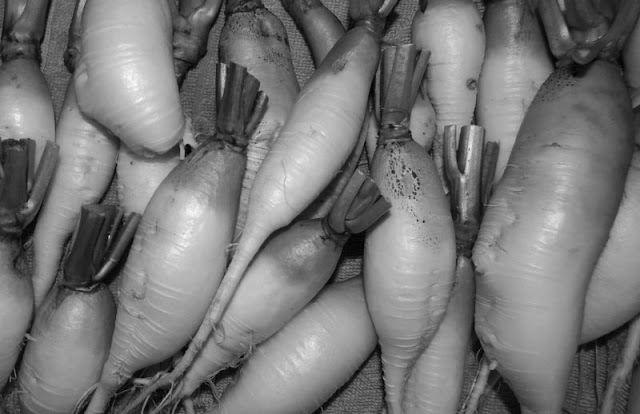We have a new official heaviest radish on record, as of the beginning of this year.
“The heaviest radish weighs 45.865 kg (101 lb 1.8 oz) and was grown by Manda Fermentation Co., Ltd. (Japan) as verified at HAKKO Park in Onomichi, Hiroshima, Japan, on 22 February 2023.
Manda Fermentation Co., Ltd. is a manufacturer of supplements and special fertilizers made from fermented botanical raw ingredients, and they grow giant radishes every year using their technology. The regular radish is harvested in 3 months, but this particular radish was harvested after 6. It had a circumference of 113 cm, and the root length was 80cm.”
The largest radish cultivar I’m aware of is the Sakurajima daikon, of which we’ll be planting some seeds in 2024. This new record-breaker probably had those genetics.
We don’t usually get radishes larger than about three pounds from the regular daikon varieties we plant. We also don’t have a great radish-growing climate, as the summer gets too hot too fast.
We’ll have to try anyhow, though.

